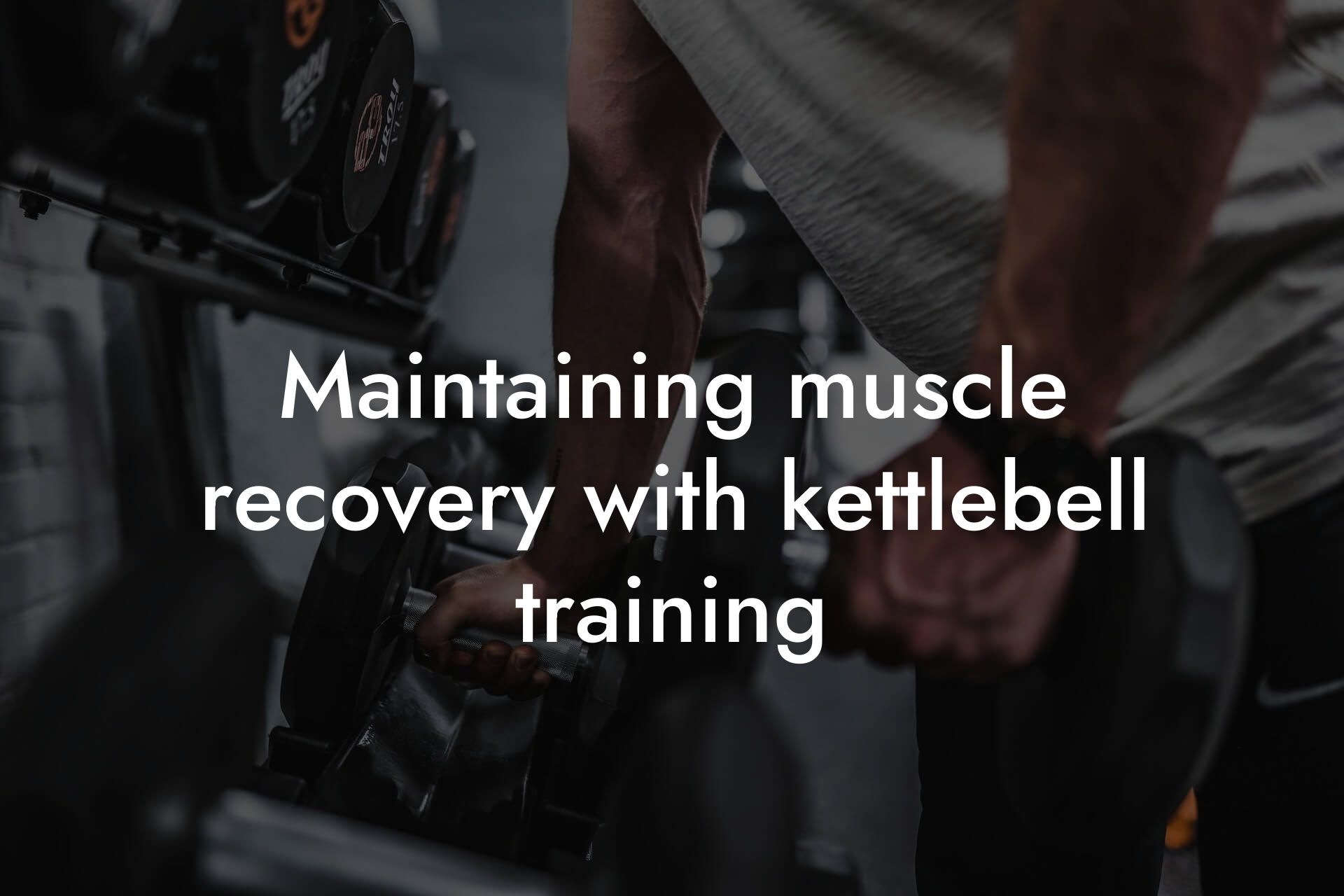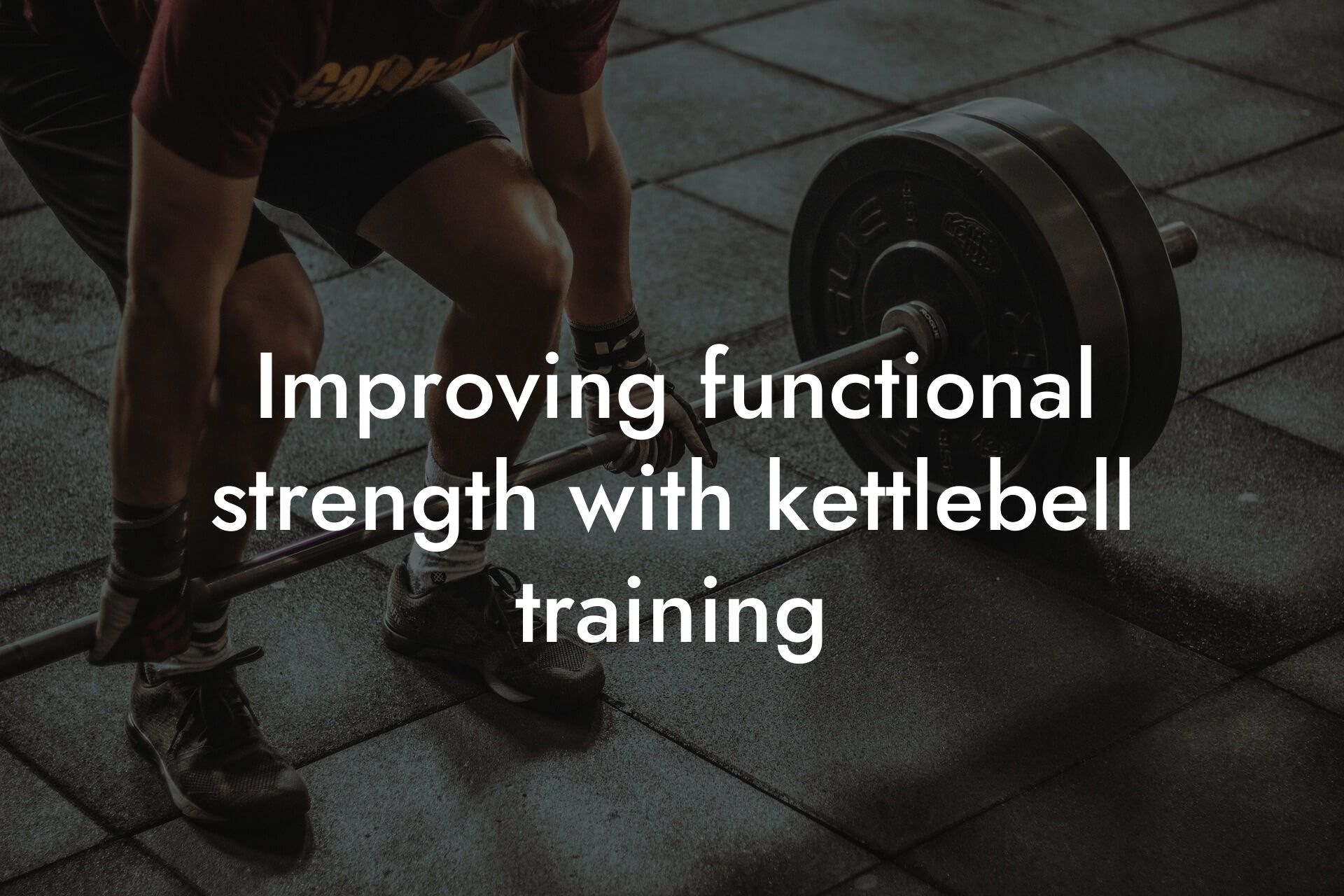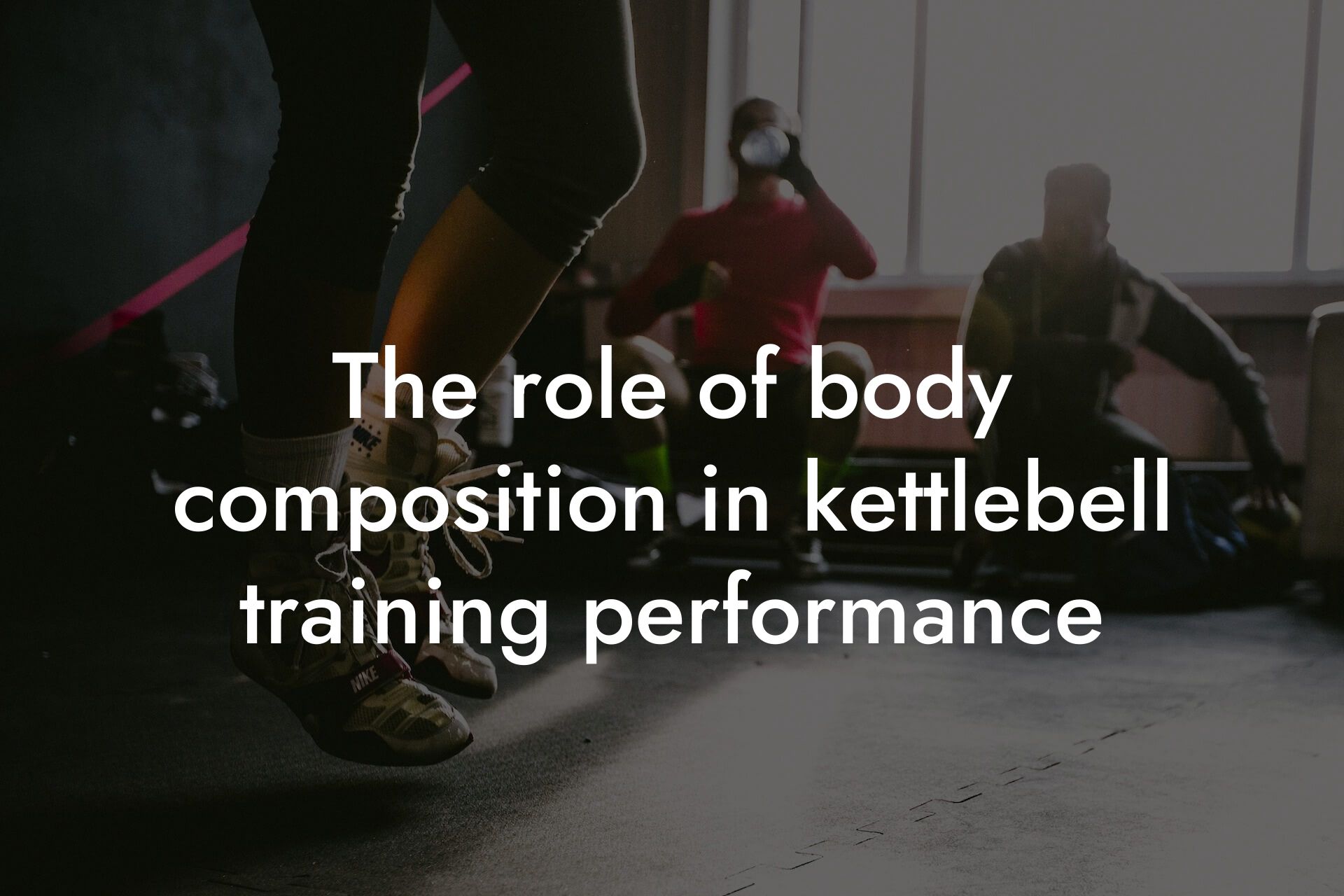As a kettlebell enthusiast, you understand the importance of fueling your body with the right nutrition to optimize your performance, recovery, and overall physique. At Tano Performance Group, we're committed to providing high-earning professionals like you with the knowledge and tools you need to take your physical appearance and fitness to the next level. In this article, we'll delve into the essential nutrition strategies you need to know to support your kettlebell training and achieve your fitness goals.
Table of Contents
Understanding Your Macronutrient Needs
When it comes to kettlebell training, you need a balanced diet that provides the right amount of macronutrients to support your energy needs, muscle growth, and recovery. The three main macronutrients are protein, carbohydrates, and fat. Here's a brief overview of each:
Protein is essential for muscle growth and repair. Aim to consume 1.6-2.2 grams of protein per kilogram of body weight from sources like lean meats, fish, eggs, dairy, and plant-based options like beans, lentils, and tofu.
Carbohydrates provide energy for your workouts and support muscle recovery. Focus on complex carbs like whole grains, fruits, and vegetables, aiming for 2-3 grams per kilogram of body weight.
Fat is also an essential energy source, particularly for high-intensity kettlebell exercises. Aim for 0.5-1 gram of fat per kilogram of body weight from sources like nuts, seeds, avocados, and olive oil.
Meal Frequency and Timing
Meal frequency and timing play a crucial role in supporting your kettlebell training. Aim to eat 4-6 main meals and 2-3 snacks in between, spaced out every 2-3 hours. This will help maintain stable energy levels and support muscle recovery.
Post-workout nutrition is particularly important, as it helps with muscle recovery and growth. Aim to consume a balanced meal with protein and complex carbohydrates within 30-60 minutes after your workout.
Hydration and Electrolytes
Proper hydration is essential for optimal performance and recovery. Aim to drink at least 8-10 glasses of water per day, and make sure to drink water during and after your workouts.
Electrolytes like sodium, potassium, and magnesium are lost through sweat and are essential for maintaining proper muscle function. Include electrolyte-rich foods like bananas, avocados, and nuts in your diet, and consider adding an electrolyte supplement to your post-workout routine.
Supplements for Kettlebell Training
While a balanced diet is essential, supplements can help support your kettlebell training and recovery. Here are some key supplements to consider:
Protein powder: A convenient way to increase your protein intake, especially post-workout.
Creatine: Helps increase strength and power, particularly during high-intensity kettlebell exercises.
Branched-Chain Amino Acids (BCAAs): Supports muscle recovery and growth, and can be taken during or after your workout.
Omega-3 fatty acids: Supports joint health and reduces inflammation.
Foods for Optimal Performance
Certain foods can help support your kettlebell training and recovery. Here are some key foods to include in your diet:
Lean meats: Grass-fed beef, chicken, and turkey provide high-quality protein and iron.
Fatty fish: Salmon, tuna, and mackerel are rich in omega-3 fatty acids and protein.
Sweet potatoes: Rich in complex carbohydrates and vitamins A and C.
Avocados: Provide healthy fats, fiber, and electrolytes.
Leafy greens: Spinach, kale, and collard greens are rich in iron, calcium, and vitamins A and C.
Foods to Avoid or Limit
Certain foods can hinder your kettlebell training and recovery. Here are some key foods to avoid or limit:
Processed meats: High in sodium, preservatives, and saturated fats.
Refined carbohydrates: White bread, sugary snacks, and sweets can cause energy crashes and inflammation.
Fried foods: High in unhealthy fats, calories, and sodium.
Sugary drinks: Avoid soda, sports drinks, and energy drinks that are high in sugar and calories.
Body Composition and Kettlebell Training
As a kettlebell enthusiast, you're likely interested in optimizing your body composition, including your body fat percentage, muscle mass, and bone density. Here are some key tips to keep in mind:
Aim to maintain a healthy body fat percentage between 10-15% for men and 15-20% for women.
Incorporate strength training exercises like kettlebell swings, cleans, and presses to build muscle mass.
Include exercises that target your core and legs, such as squats, deadlifts, and lunges, to improve bone density.
Get regular DEXA scans to track your body composition and make data-driven decisions about your training and nutrition.
In conclusion, a well-planned nutrition strategy is essential for optimal kettlebell training and recovery. By understanding your macronutrient needs, meal frequency and timing, hydration, and supplementation, you can take your fitness to the next level. Remember to focus on whole, nutrient-dense foods, and avoid or limit processed and high-calorie foods. With the right nutrition and training, you can achieve your fitness goals and maintain a healthy, lean physique.
At Tano Performance Group, we're committed to helping high-earning professionals like you achieve their fitness goals through our comprehensive DEXA scans and personalized coaching. Contact us today to learn more about how we can help you optimize your nutrition and training for optimal results.
Frequently Asked Questions
What is the importance of nutrition for kettlebell enthusiasts?
Nutrition plays a crucial role in optimizing performance, recovery, and overall health for kettlebell enthusiasts. A well-planned diet provides the necessary fuel for energy production, supports muscle growth and repair, and helps to reduce the risk of injury. By focusing on proper nutrition, kettlebell enthusiasts can enhance their training, improve their physique, and achieve their fitness goals.
What are the key macronutrients that kettlebell enthusiasts should focus on?
The three key macronutrients that kettlebell enthusiasts should focus on are protein, carbohydrates, and fat. Protein is essential for muscle growth and repair, carbohydrates provide energy for workouts, and fat is necessary for hormone production and overall health. A balanced diet that includes all three macronutrients is crucial for optimal performance and recovery.
How much protein do kettlebell enthusiasts need?
The recommended daily intake of protein for kettlebell enthusiasts is 1.6-2.2 grams per kilogram of body weight. This can be achieved through a combination of whole foods and supplements. Adequate protein intake is essential for muscle growth, repair, and recovery.
What are the best sources of protein for kettlebell enthusiasts?
The best sources of protein for kettlebell enthusiasts include lean meats such as chicken, turkey, and fish, as well as plant-based options like beans, lentils, and tofu. Additionally, protein supplements like whey protein and casein protein can be useful for convenience and to ensure adequate intake.
What is the role of carbohydrates in a kettlebell enthusiast's diet?
Carbohydrates are an essential source of energy for kettlebell enthusiasts. They provide fuel for workouts, support muscle function, and help to reduce fatigue. Complex carbohydrates like whole grains, fruits, and vegetables are ideal, while simple carbohydrates like sugary drinks and refined grains should be limited.
How much carbohydrate intake is recommended for kettlebell enthusiasts?
The recommended daily intake of carbohydrates for kettlebell enthusiasts is 2-3 grams per kilogram of body weight. This can be achieved through a balanced diet that includes complex carbohydrates like whole grains, fruits, and vegetables.
What is the importance of healthy fats in a kettlebell enthusiast's diet?
Healthy fats are essential for hormone production, brain function, and overall health. They also provide a source of energy and support the absorption of vitamins and minerals. Kettlebell enthusiasts should focus on consuming healthy fats like avocado, nuts, and olive oil.
How much healthy fat intake is recommended for kettlebell enthusiasts?
The recommended daily intake of healthy fats for kettlebell enthusiasts is 0.5-1 gram per kilogram of body weight. This can be achieved through a balanced diet that includes healthy fats like avocado, nuts, and olive oil.
What is the best way to stay hydrated as a kettlebell enthusiast?
Staying hydrated is crucial for kettlebell enthusiasts, as it helps to regulate body temperature, transport nutrients, and remove waste products. Aim to drink at least 8-10 glasses of water per day, and make sure to drink water before, during, and after workouts.
What are some healthy snack options for kettlebell enthusiasts?
Healthy snack options for kettlebell enthusiasts include fruits, nuts, energy bars, and protein shakes. Aim for snacks that are high in protein and complex carbohydrates, and low in added sugars and unhealthy fats.
Can kettlebell enthusiasts follow a vegan or vegetarian diet?
Yes, kettlebell enthusiasts can follow a vegan or vegetarian diet. However, it's essential to ensure that you're getting enough protein and other essential nutrients through plant-based sources. Consult with a registered dietitian or nutritionist to create a personalized meal plan.
How does nutrition impact recovery for kettlebell enthusiasts?
Nutrition plays a critical role in recovery for kettlebell enthusiasts. A well-planned diet that includes adequate protein, complex carbohydrates, and healthy fats helps to reduce muscle soreness, promote muscle growth and repair, and support overall recovery.
What are some common nutrition mistakes that kettlebell enthusiasts make?
Common nutrition mistakes that kettlebell enthusiasts make include inadequate protein intake, consuming too much sugar, and not staying hydrated. Additionally, many kettlebell enthusiasts may not eat enough calories to support their energy needs, leading to fatigue and poor performance.
How can kettlebell enthusiasts track their nutrition and progress?
Kettlebell enthusiasts can track their nutrition and progress by using a food diary or mobile app, taking progress photos, and monitoring their body fat percentage and measurements. Regularly tracking progress helps to identify areas for improvement and stay motivated.
What is the role of supplements in a kettlebell enthusiast's diet?
Supplements can be useful for kettlebell enthusiasts to ensure adequate nutrient intake, particularly for protein and creatine. However, it's essential to consult with a registered dietitian or nutritionist to determine the best supplements for your individual needs.
Can kettlebell enthusiasts eat before or after a workout?
Yes, kettlebell enthusiasts can eat before or after a workout. Aim to eat a balanced meal that includes protein and complex carbohydrates 1-2 hours before a workout, and consume a post-workout snack or meal that includes protein and carbohydrates within 30-60 minutes after a workout.
What are some healthy meal options for kettlebell enthusiasts?
Healthy meal options for kettlebell enthusiasts include grilled chicken or fish with quinoa and vegetables, lean beef or turkey burgers with sweet potato and avocado, and vegetable stir-fries with tofu and brown rice.
How can kettlebell enthusiasts avoid nutrient deficiencies?
Kettlebell enthusiasts can avoid nutrient deficiencies by consuming a balanced diet that includes a variety of whole foods, taking supplements as needed, and consulting with a registered dietitian or nutritionist. Regularly tracking progress and monitoring nutrient intake can also help to identify areas for improvement.
What is the importance of electrolytes for kettlebell enthusiasts?
Electrolytes are essential for kettlebell enthusiasts, as they help to regulate fluid balance, nerve function, and muscle contractions. Aim to consume electrolyte-rich foods like bananas, avocados, and coconut water, and consider taking an electrolyte supplement during intense workouts.
How can kettlebell enthusiasts support their immune system through nutrition?
Kettlebell enthusiasts can support their immune system through nutrition by consuming a balanced diet that includes fruits, vegetables, whole grains, and lean proteins. Additionally, staying hydrated, getting adequate sleep, and managing stress can also help to support immune function.
What are some healthy dessert options for kettlebell enthusiasts?
Healthy dessert options for kettlebell enthusiasts include fruit salads, Greek yogurt with honey and nuts, and dark chocolate with at least 70% cocoa content. Aim for desserts that are low in added sugars and unhealthy fats, and high in nutrients and antioxidants.
How can kettlebell enthusiasts maintain a healthy gut through nutrition?
Kettlebell enthusiasts can maintain a healthy gut through nutrition by consuming a balanced diet that includes fermented foods like yogurt and kimchi, fiber-rich foods like fruits and vegetables, and omega-3 fatty acids like salmon and flaxseeds. Additionally, staying hydrated and managing stress can also help to support gut health.
What is the importance of meal timing for kettlebell enthusiasts?
Meal timing is crucial for kettlebell enthusiasts, as it helps to regulate energy levels, support muscle function, and promote recovery. Aim to eat a balanced meal or snack every 3-4 hours, and adjust meal timing based on individual needs and training schedules.
How can kettlebell enthusiasts get enough sleep to support nutrition and recovery?
Kettlebell enthusiasts can get enough sleep to support nutrition and recovery by aiming for 7-9 hours of sleep per night, establishing a consistent sleep schedule, and creating a relaxing bedtime routine. Adequate sleep is essential for muscle recovery, hormone regulation, and overall health.
Here are some related articles you might love...
- Maintaining muscle recovery with kettlebell training
- Improving functional strength with kettlebell training
- The role of body composition in kettlebell training performance
- Reducing body fat for better kettlebell workout results
- The importance of bone density in kettlebell fitness
- Strength training tips specific to kettlebell exercises
- Balancing strength, speed, and flexibility in kettlebell workouts
- How DEXA scans can benefit kettlebell training athletes
Zak Faulkner
Zak Faulkner is a leading authority in the realm of physical health and body composition analysis, with over 15 years of experience helping professionals optimise their fitness and well-being. As one the experts behind Tano Performance Group, Zak has dedicated his career to providing in-depth, science-backed insights that empower clients to elevate their physical performance and overall health.
With extensive knowledge of DEXA technology, Zak specializes in delivering comprehensive body assessments that offer precise data on body fat, muscle mass, bone density, and overall physique. His expertise enables individuals to make informed decisions and achieve their fitness goals with accuracy and confidence. Zak’s approach is rooted in a deep understanding of human physiology, combined with a passion for helping clients unlock their full potential through personalised strategies.
Over the years, Zak has earned a reputation for his commitment to excellence, precision, and client-focused service. His guidance is trusted by top professionals who demand the best when it comes to their health. Whether advising on fitness programs, nutritional strategies, or long-term wellness plans, Zak Faulkner’s insights are a valuable resource for anyone serious about taking their health and fitness to the next level.
At Tano Performance Group, Zak continues to lead our Content Team revolutionising how professionals approach their physical health, offering unparalleled expertise that drives real results.




